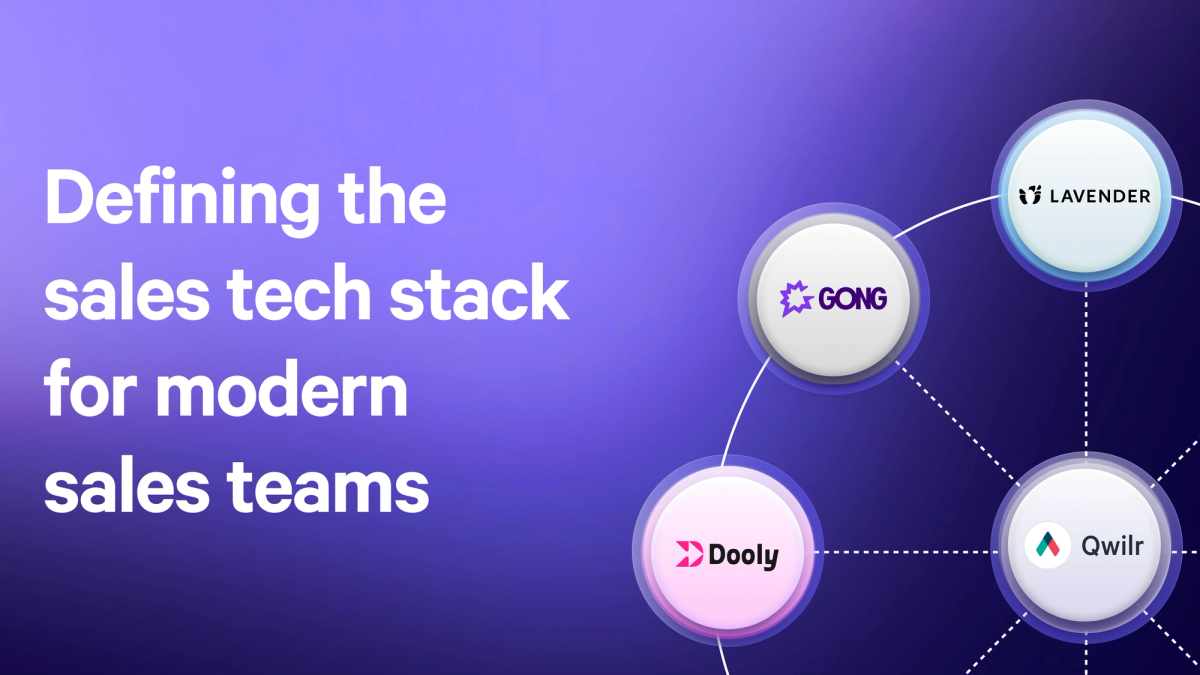In team sports, excellence is a measure of not just how many championship trophies they bring home but how players function as a team, the kind of culture they build and exude (on the field and outside of it) and how they represent themselves and their club.
In sales, excellence can be determined by how well a sales rep (or team of salespeople) meets their quota and how much revenue they generate for the company. However, it is also measured in customer satisfaction, retention rate, and building strong relationships with clients.
In both cases, excellence requires discipline, skill, and hard work. Teams that win championships are a result of consistent practice, continuous learning, and a strong work ethic. Sales representatives who consistently meet their quotas are those who put in the time to understand their products and customers, always looking for ways to improve. To achieve this, mastering key sales traits can be instrumental in driving success.
Looking to build a sales team with a culture of sales excellence? This article was written especially for you.
What Is Sales Excellence?
At a very basic level, sales excellence is translated into how much revenue your sales team brings in. Beyond that, however, sales excellence is a collection of characteristics both your team and each sales rep display that put them above the rest.
These characteristics include (but are in no way limited to):
- Professionalism
- Knowledge of products or services
- Time management skills
- Outstanding communication abilities
- Ability to develop and nurture relationships with customers
Ultimately, sales excellence will reflect in your revenue and customer satisfaction, retention rate, and overall company success.
Building a culture of sales excellence
Sales excellence isn't something you can hack your way into. It's all about consistent effort -- on your end as a sales leader and on the sales reps' end.
It's also not just a "thing" you say in team meetings. It lives in your sales processes, how you incentivize your team, and how you make sure everyone has the resources they need to do their jobs well. It's in how you teach your team to work towards common goals, like marketing alignment, sales productivity, velocity, or other key performance indicators.
Ultimately, cultivating a culture of excellence requires a strong foundation built on trust, open communication, and continuous improvement. It also involves setting clear expectations and providing the necessary resources for your team to succeed. Implementing sales automation tools can streamline processes and enhance productivity, further contributing to a culture of excellence.
Core principles of sales excellence
There are, of course, many ways to define and achieve sales excellence. You can build a sales excellence program to help train employees in the core principles. These may vary a bit from sales organization to sales organization, but the principles below are a great place to start if this is new to you.
Empathy
Empathy, in the context of sales, revolves around understanding and sharing the feelings, needs, and perspectives of your customers. It's about getting into your customer's shoes, experiencing their challenges, and using that insight to provide solutions that genuinely make a difference.
In this context, empathy becomes more than just a desirable trait for salespeople: it's a business asset. It fosters trust, builds relationships, and drives customer satisfaction, making it a critical factor in achieving sales excellence.
Strategic Thinking
Every good sales rep needs to know how to think strategically about their territory, accounts, and deals. This means knowing how to look at the bigger picture, understanding market trends and customer needs, and using that information to steer conversations toward desired outcomes.
Effective Processes
Effective processes form the backbone of sales excellence. These include streamlined workflows, clear guidelines, and modern sales technologies supporting the sales team and the customer journey. With robust processes in place, sales teams can function efficiently, close deals faster, and deliver a seamless customer experience. Ultimately, effective processes can drive both revenue growth and customer satisfaction, acting as key contributors to sales excellence.
Persuasion
Of course, sales excellence and unbeatable persuasion skills go hand in hand. Persuasion is influencing someone's beliefs, attitudes, or behaviors. In sales, persuasion is about building trust and credibility with your customers and using that trust to guide them toward purchasing.
However, it's crucial to note that persuasion in sales should always be ethical and customer-centric. It's not about manipulating or pressuring customers into buying something they don't need, but rather about understanding their needs and presenting solutions that align with them.
Negotiation Skills
Not only should excellent sales reps be persuasive, but they should also be skilled negotiators. They should know how to close deals in a way that makes customers feel satisfied with their purchase decisions. Negotiation is about finding the best possible outcome for both parties involved, and it requires strong communication abilities, active listening skills, and a win-win mindset.
Relationship-Building
Strong relationships are the foundation of any successful sales team, even when relationship selling is not your main approach. Building connections with customers involves trust, understanding, and effective communication. It's about getting to know your customers on a personal level and building rapport that goes beyond the transactional aspect of sales.
Data-Driven Mindset
Modern sales teams know data makes the world go round -- and they know how to source, filter, and learn from it. A data-driven mindset is critical to sales excellence, as it allows teams to make informed decisions based on real-time insights and customer behavior patterns.
Technology Enablement
From running sales meetings to delivering spot-on sales proposals, managing customer data, and tracking performance, sales technology is at the core of modern selling. Technology enablement means providing your team with tools and resources that help them work smarter, close deals faster, and stay ahead of the competition. It's about empowering your team to do their jobs more efficiently and effectively.
Continuous Learning
Excellent salespeople know that learning is a lifelong pursuit. Once they've mastered one thing, they're ready to jump on another, consistently refining and perfecting their sales skills. As a manager, encouraging a culture of continuous learning within your team can lead to innovative thinking, adaptability, and overall sales excellence.
The path to achieving sales excellence
There isn't only one way to achieve sales excellence -- the path to get there (and what it looks like in practice) will be different from organization to organization. But, if you're not sure where to start, these steps will get you on that path to defining and refining it in your organization.
Build a solid sales strategy and sales processes
Would you go hiking on an unknown mountain without any directions or a map? Probably not -- and even if you did feel adventurous, you wouldn't want to drag along five, ten, or twenty people.
The same goes for sales -- you need a solid strategy and processes to guide you on your path to excellence. This could include defining your target market, setting clear goals and expectations, mapping out the customer journey, and establishing efficient workflows.
Create an operating model
An Operating Model is like a manual on how to make decisions, assign roles, and achieve goals within your sales team. It's a framework that outlines how your team functions and interacts with each other and the tools and resources they use to get their jobs done. An operating model can help ensure consistency, transparency, and accountability within your team.
Invest in good technology
No software will ever streamline the entire sales process -- but good sales tools can make the difference between a clunky, inefficient sales team and one that runs like a well-oiled machine. Invest in technology that aligns with your team's needs and goals, and ensure everyone is trained on how to use it effectively. The tech needs may vary from team to team, so getting feedback about your tech stack and what else might be helpful is a good practice when building a professional sales organization.
Foster up-skilling and organize training
Excellent salespeople don't become excellent overnight -- it's a continuous process that requires constant learning and growth. As a manager, encourage your team to up-skill through training programs, workshops, and conferences. Additionally, consider organizing internal training sessions where team members can share their knowledge and experience.
Measure progress
A culture of sales excellence means measured and sustainable growth -- so be sure to establish metrics and KPIs that align with your team's objectives. This could include tracking sales performance, customer satisfaction levels, conversion rates, and more. Use these KPIs to identify areas for improvement and celebrate wins as a team.
Practice opportunity scoping
Opportunity scoping is the process of identifying potential sales opportunities and evaluating their viability. This involves understanding your target market, conducting thorough research, and actively seeking out new leads. By practicing opportunity scoping, you can uncover new areas for growth and stay ahead of industry trends -- and you can also foster a culture of innovation within your team.
Fine-tune your pitches
The best pitches don't feel like pitches at all -- they're natural, engaging conversations that spark curiosity and leave a lasting impression. And that is precisely what you should aim for.
Work with your team to fine-tune their pitches, incorporating storytelling techniques, active listening skills, and personalization. By doing so, you can create more meaningful connections with potential customers and improve your chances of closing deals.
Cultivate social skills and openness
Great sales teams thrive with good social skills and a willingness to be open with each other. Working in sales means interacting with a wide variety of people, and being able to effectively communicate, build relationships, and understand different perspectives is crucial. Encourage your team to develop their social skills by practicing active listening, empathy, and open-mindedness.
Metrics and KPIs for monitoring sales excellence
Achieving and maintaining sales excellence needs proper management and monitoring. To track your team's progress, you should set specific metrics and key performance indicators (KPIs) that align with your objectives and goals. Here are some examples of metrics and KPIs you can use to monitor sales excellence:
Content engagement
How much are prospects engaging with your sales enablement content? This could include metrics like views, downloads, shares, and time spent on each piece of content. By monitoring these metrics, you can identify which materials are resonating with your target audience and make adjustments as needed.
Total revenue
Naturally, you should measure the total revenue generated by your team. This could include tracking overall sales growth, individual performance, and revenue per customer. Use this metric to identify areas for improvement and celebrate successes.
Average customer lifetime value (CLV)
Tracking your CLV is important for sales excellence because it helps you understand how your sales team impacts your business's long-term success. By monitoring this metric, you can identify which customers are most valuable and focus your efforts on retaining and upselling to them.
Customer acquisition cost (CAC)
Although this metric is usually shared between sales and marketing strategy teams, it's still important to monitor it as part of your sales excellence efforts. By tracking your CAC, you can identify how much it costs to acquire new customers and adjust your strategies accordingly.
Year-over-year growth
Looking at your team's year-over-year growth is a great way to measure progress and identify trends. This could include tracking overall sales growth, customer retention rates, and revenue per product or service. Use this metric to inform your strategic decisions and adapt your approach.
Percentage of sales reps attaining quota
Sales excellence is all about reaching -- and exceeding -- your quotas. So, if you want to see just how well your team is performing, measure the percentage of reps who have met or exceeded their goals. This can help identify areas for improvement and recognize top performers. Keep in mind exceeding quotas is actually pretty rare -- only around 24% of sales people do it.
Time spent on sales activities and tasks
You also want to measure how much time your salespeople are spending on sales activities and sales tasks. Ideally, you want to measure these separately so you know exactly where most of your team's time is spent. By tracking these metrics, you can identify bottlenecks in your sales process and make adjustments to improve sales efficiency.
Sales tools usage
Your team's use of sales tools can significantly impact their overall performance and productivity. Measure your sales enablement tools' usage and adoption rate to identify any barriers or gaps in the utilization of your tech stack and make necessary changes.
Percentage of quality leads reps follow up with
Tracking the percentage of quality leads your reps follow up with can give you insight into their overall effectiveness in qualifying and converting leads. This metric can also help identify areas for improvement in lead generation and qualification processes.
Time to quota
Monitoring the time it takes for your reps to reach their quotas can help you understand how well your sales processes and strategies are working. Use this metric to identify areas for improvement and set realistic expectations for future quota attainment.
Time to deal
How long does it take a sales rep to close a deal? This metric can help you understand your team's efficiency and effectiveness in the sales process. By tracking this metric, you can identify any bottlenecks or areas for improvement and make necessary adjustments to speed up the sales cycle.
Time spent in onboarding
If your sales professionals also handle customer onboarding, measure how long it takes them to complete the process. This can help identify any barriers or gaps in your onboarding process and make necessary changes to ensure a smooth and efficient customer experience.
Time to ramp
How long will your sales team take to become fully ramped and productive? This metric can help you identify any issues in your training or onboarding processes and make necessary changes to streamline the ramp-up time.
Time to productivity
Similar to time to ramp, this metric measures how long a sales rep can become fully productive and meet their quotas. Use this metric to evaluate the effectiveness of your training and onboarding programs, identify areas for improvement, and set realistic expectations for new hires.
Learning management system data
Excellence can only be achieved and maintained when continuous learning is embedded in your team's sales culture. Monitoring data from your learning management system can give you valuable insights into who is actively engaging with training materials, which topics are most popular, and areas for improvement in your training programs.
Examples of sales excellence in action
Regardless of where you work, sales excellence is unique to each organization, even when they're in the same industry and selling similar products or services. However, there are some common examples of sales excellence in action that you can learn from and apply to your team.
- Your team consistently meets and exceeds quota
- Your team has a high customer retention rate
- Your reps have a high average CLV
- Your team uses data and analytics to inform their strategies and decisions
- Your sales training program is highly effective in developing employees
- Your reps are well-versed in your company's industry, products, and services -- they're experts in their field
Modern tools for enabling sales excellence
The right tech can make all the difference in helping your sales team achieve excellence -- but not all tools are created equal. To make sure your tech stack helps your sales team (and doesn't just add extra work), look for intuitive tools, integrate easily with each other, and provide valuable insights and analytics. Some of the best sales tools that can help enable sales excellence include:
Salesforce
Salesforce is arguably one of the most well-known sales tools on the market. This powerful CRM (Customer Relationship Management) software helps your team manage customer relationships, track sales activities, and analyze data to inform strategies and decisions. With its user-friendly interface, easy integration with other tools, and extensive customization options, Salesforce is a top choice for many companies looking to enable sales excellence.
HubSpot
HubSpot is famous for many things, but its CRM and marketing automation software is a top choice for many businesses looking to improve their sales processes. With its all-in-one platform, HubSpot offers features such as lead management, email tracking and automation, and analytics to help your team work more efficiently and effectively. Plus, it's the kind of tool that helps with sales alignment -- so investing in it can yield excellent results.
Qwilr
Qwilr is the best proposal software for modern sales teams. This cloud-based tool lets you easily create aesthetic, interactive proposals that engage prospects and close deals faster. It comes with industry-based and sales methodology-based templates and a lot of useful features, like:
- eSignature (which you can embed in sales proposals directly)
- Analytics (so you can track proposal opens and views)
- Integrations (like HubSpot, Salesforce, and Zapier)
- Automation (so you can create recurring proposals and automate follow-ups)
- Collaboration (so your entire team can work on the same proposal without back and forth)
Dialpad
Dialpad is a modern communication and collaboration tool that can help streamline your sales team's processes. Its main features include:
- A simple, intuitive interface that integrates with other tools such as Salesforce and HubSpot
- AI-powered call analysis for coaching and insights into sales conversations
- Real-time transcription for note-taking during calls
- Video conferencing capabilities for remote
Cloze
Cloze is a relationship management tool that helps your team stay on top of communications with prospects and customers. Its main features include:
- Intelligent contact management, which automatically prioritizes important messages and tasks
- Email tracking to keep track of who has opened your emails
- Analytics to help you understand your pipeline and sales engagement
- Integrations with tools like Gmail, Outlook, Slack, and Zapier
FAQs
What does a sales excellence team do?
A sales excellence team creates and implements strategies, processes, and tools to help sales teams achieve performance and results. This can include optimizing training and onboarding programs, using data to inform decision-making, implementing effective communication and collaboration tools, and more.
Building and sustaining a culture of sales excellence
Sales excellence means more than just a goal to reach once and forget about -- it's a continuous, ever-evolving journey that requires consistent effort, learning, and adaptation. It's also not a unicorn or a one-size-fits-all solution; it's unique to each company and team.
Using the right tools, tracking essential metrics, and constantly striving for the improvement of your sales management process, you can create a culture of excellence within your sales team that drives success and growth.
So keep learning, innovate, and never settle for less than the best.
About the author

Brendan Connaughton|Head of Growth Marketing
Brendan heads up growth marketing and demand generation at Qwilr, overseeing performance marketing, SEO, and lifecycle initiatives. Brendan has been instrumental in developing go-to-market functions for a number of high-growth startups and challenger brands.


